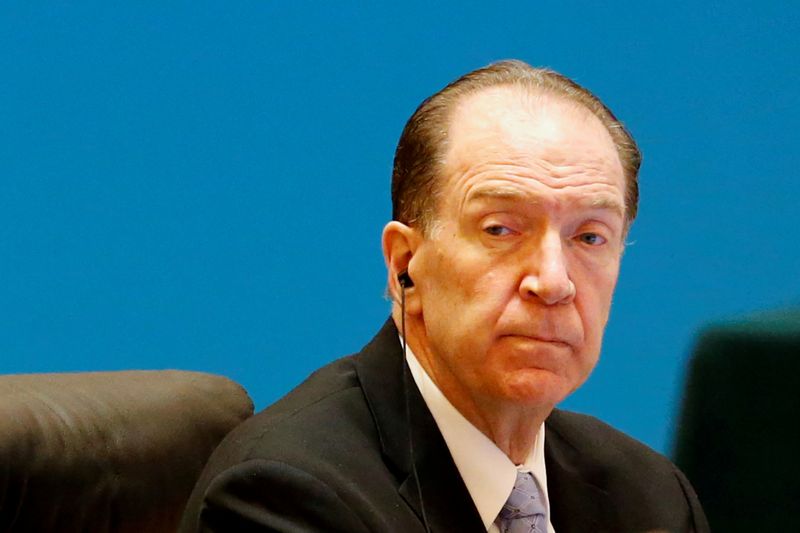By Marc Jones and Andrea Shalal
LONDON/WASHINGTON (Reuters) - Plans for debt relief for the world's poorest countries inched forward on Thursday as private creditors laid out a blueprint for their involvement, though it received immediate criticism for not going far enough.
The proposal shepherded by the Institute of International Finance (IIF) said creditors would grant debt breaks on a case-by-case and voluntary basis this year, after concluding a one-size-fits-all approach would have been "practically impossible."
It was the culmination of work involving more than 100 top money managers after the Group of 20 economies had called on the private sector to match their recent Debt Service Suspension Initiative (DSSI) to help 77 low-income countries.
"The IIF has been adamant that creditors of every type and size have a role to play in making sure the world's most vulnerable countries have the liquidity needed to combat the COVID-19 pandemic," said IIF President and CEO Tim Adams.
The G20 proposal and the IIF plan cover only to the end of the year, and with no cure for coronavirus expected in the coming months, it may not be enough.
U.N. chief Antonio Guterres called on Thursday for debt relief to be expanded, and urged the International Monetary Fund to increase allocations of its Special Drawing Rights (SDR) currency to give countries more access to funding.
African countries face a combined $44 billion debt-servicing bill this year alone. It is estimated that the pandemic and the economic shutdowns could push as many as 60 million people into extreme poverty around the world.
"Alleviating crushing debt cannot be limited to the Least Developed Countries," Guterres told a high-level U.N. meeting on how to handle the pandemic's economic fallout. "It must be extended to all developing and middle-income countries that request forbearance as they lose access to financial markets."
(Impact of debt relief for world's poorest countries IMAGE: https://fingfx.thomsonreuters.com/gfx/mkt/xlbvgjdlpqd/Pasted%20image%201586259767322.png)
NOT ENOUGH
World Bank President David Malpass also warned at the conference that "much more" debt relief would be needed. He said around half the 77 countries eligible for the G20 debt relief had applied for help so far, and more were signing up.
All official bilateral creditors should offer help, he stressed, and said commercial creditors should "participate on comparable terms and not exploit the debt relief of others."
He rejected calls, though, for the World Bank and other multilateral development banks to freeze debt payments, saying that would harm their ability to provide much-needed funding.
The Saudi G20 secretariat, in a statement issued after an extraordinary working group meeting, said the debt relief initiative could provide $14 billion in liquidity as more countries signed up. But it said the amount could be even higher if additional creditors such as multilateral development banks and private-sector creditors joined the initiative.
The IIF's plan included coordination with the International Monetary Fund, World Bank, Paris Club, United Nations Economic Commission for Africa, and more than a dozen finance and development ministers representing DSSI-eligible countries.
U.N. officials say debt relief is imperative to enable developing economies to spend more on containing the coronavirus and limiting what economists worry is an inevitable debt crisis.
Tim Jones, head of policy at Jubilee Debt Campaign, a charity that focuses on reducing poverty, was critical.
"Overall, the G20 agreement in April and IIF proposal today go nowhere near responding to the unprecedented nature of the coronavirus debt crisis," Jones said.

Some countries could end up paying far more in the medium-term due to accrued interest, he said, and some lenders could ignore the plan, which is voluntary.